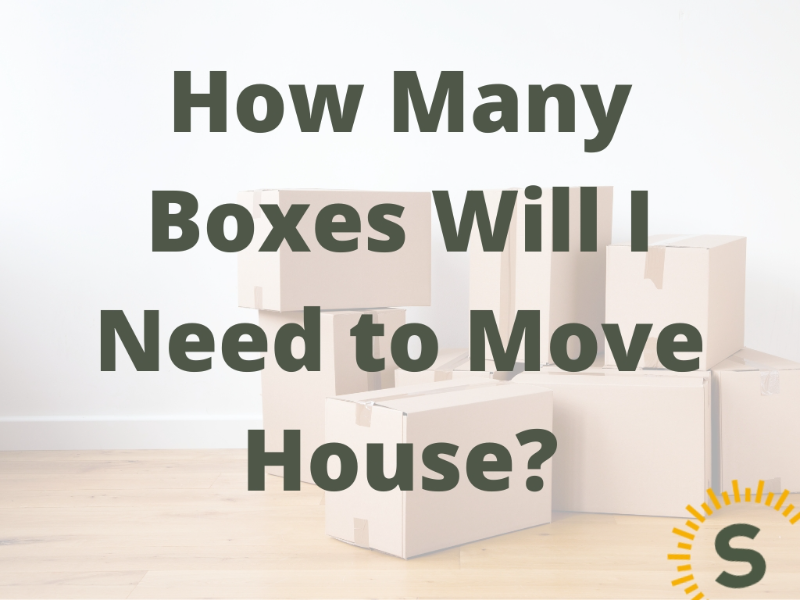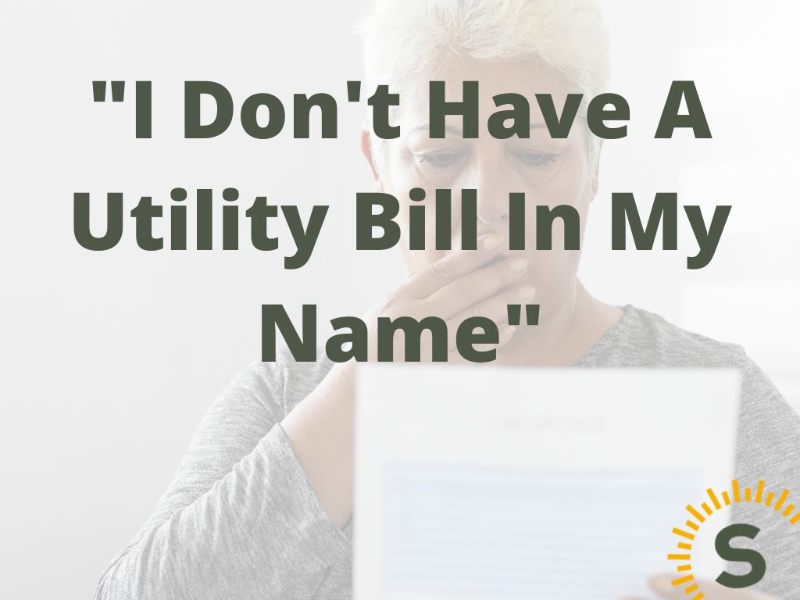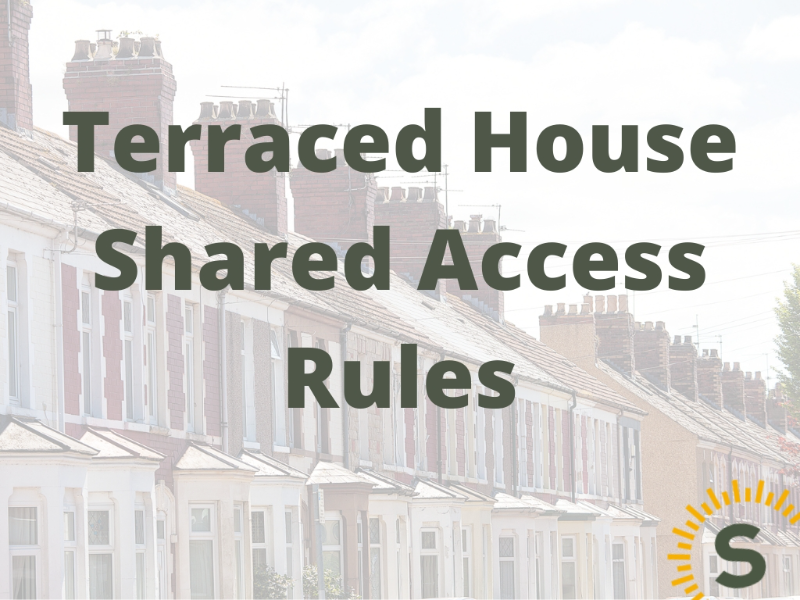
Relocating to a new home can be an overwhelming task, especially when the question "How many boxes will I need to move house?" comes to mind. You need to juggle cost with efficiency. After all, you can't be making trips back and forth.
This insight provides detailed information to help you figure out the exact number of boxes you'll need, ensuring a smooth and hassle-free transition to your new abode.
On average, most families require around 60 boxes for an average-sized move. However,the number of boxes needed to move house varies based on factors like the number of rooms, occupants, years spent in the home, square footage, lifestyle, and level of pre-move decluttering.
Moving house is all about preparation and the right packing materials, chiefly cardboard boxes, play a pivotal role in this process. Apart from your bulky furniture and appliances, most of your possessions need to be carefully packed into boxes for secure and easy transport. Underestimating the number of boxes required is a common error and can lead to unnecessary stress. Therefore, accurately estimating the quantity of boxes is crucial to a successful move.
Several factors come into play when determining the number of boxes needed for your move:
Naturally, the more rooms your property has, the more boxes you'll require. Each room will have its own set of belongings that need to be packed and transported.
The number of people residing in the property also affects the number of boxes needed. More occupants mean more personal items and thus, more boxes.
The length of your stay in your current property matters as well. The longer you've lived there, the more likely it is that you've accumulated a significant number of items.
Your lifestyle plays a substantial role too. If you're a minimalist, you'll need fewer boxes than someone who has a habit of hoarding items.
Prior to your move, if you've managed to declutter your home, donate unwanted items, or sell off unnecessary furniture, you'll require significantly fewer boxes.
To answer the question, "How many boxes will I need to move house?" you need to be aware of the various box sizes available:
These compact boxes are ideal for small, heavy items such as books, CDs, DVDs, and small appliances. They can typically hold about 20 magazines or 6 wine bottles.
These are perfect for items that need a bit more space. They're quite versatile and can hold 5-15 cans and boxes of non-perishables, making them great for packing your kitchen pantry.
Large boxes are best for moving folded clothes and shoes. However, avoid packing too many heavy items in these boxes as they could become too heavy to carry safely.
The largest of the lot, these boxes are suitable for light and bulky items, ensuring easy transportation. Try not to overload these boxes as it can make them cumbersome to move.
Apart from the standard boxes, there are special boxes designed for specific items. For example:
Your home size significantly impacts the number of boxes you'll need. Here's a guideline to give you a rough idea:
For a studio apartment, you might need around 13 small boxes, 9-17 medium boxes, 5-6 large boxes, and 2-7 extra-large boxes.
For a one-bedroom home, you might require approximately 15-18 small boxes, 18-29 medium boxes, 10 large boxes, and 4-9 extra-large boxes.
For a two-bedroom home, you'll likely need about 35 small boxes, 27-38 medium boxes, 15 large boxes, and 6-11 extra-large boxes.
For a three-bedroom home, you'll probably require around 38 small boxes, 36-47 medium boxes, 20 large boxes, and 8-13 extra-large boxes.
In addition to boxes, there are a few more packing supplies that you'll need for your move:
Packing tape is crucial for securely sealing your boxes. Purchase an extra roll for every 30-60 boxes you have.
These are essential for wrapping fragile items. At a minimum, you should have 3 lbs of packing paper and 20 feet of bubble wrap.
Markers are handy for labelling your boxes. You should have 1-4 markers at your disposal.
Ensure every box has at least one label. Using coloured labels for different rooms can make unpacking much easier.
Donating unwanted items or selling them off can significantly reduce the number of boxes needed for the move.
Packing delicate items like jewelry and fragile items correctly can save you time and prevent damage.
Pack a box with essentials that you'll need during the first two days in your new home. This will make your first night more comfortable.
Understanding "How many boxes will I need to move house?" can save you a lot of time and stress during your move. Remember, it's always better to have more boxes than you need than to run out midway through packing. See our insight: Best Moving Boxes & Best Boxes for moving Vinyls for more information.

Stuart is an expert in Property, Money, Banking & Finance, having worked in retail and investment banking for 10+ years before founding Sunny Avenue. Stuart has spent his career studying finance. He holds qualifications in financial studies, mortgage advice & practice, banking operations, dealing & financial markets, derivatives, securities & investments.
 No minimum
No minimum  Newcastle-under-Lyme, Staffordshire
Newcastle-under-Lyme, Staffordshire Free Consultations
Free Consultations
 No minimum
No minimum  Free Consultations
Free Consultations
 No minimum
No minimum  No obligation consultation
No obligation consultation
 No minimum
No minimum  No obligation consultation
No obligation consultation
 No minimum
No minimum  Free Consultations
Free Consultations
 No minimum
No minimum  No obligation consultation
No obligation consultation
 No minimum
No minimum  No obligation consultation
No obligation consultation
 No minimum
No minimum  Free Consultations
Free Consultations
 No minimum
No minimum  Free Consultations
Free Consultations
 No minimum
No minimum  Coatbridge, Lanarkshire
Coatbridge, Lanarkshire Initial or Ongoing Consultation Fees
Initial or Ongoing Consultation Fees
 No minimum
No minimum  Initial or Ongoing Consultation Fees
Initial or Ongoing Consultation Fees
 £21,000 +
£21,000 +  Initial fee free consultation
Initial fee free consultation
 London, Greater London
London, Greater London No obligation consultation
No obligation consultation
 No minimum
No minimum  No obligation consultation
No obligation consultation
 No minimum
No minimum  Initial fee free consultation
Initial fee free consultation
 No minimum
No minimum  No obligation consultation
No obligation consultation
 No minimum
No minimum  No obligation consultation
No obligation consultation
 No minimum
No minimum  Initial fee free consultation
Initial fee free consultation
 No minimum
No minimum  Initial or Ongoing Consultation Fees
Initial or Ongoing Consultation Fees
 £51,000+
£51,000+  Free Consultations
Free Consultations
 No minimum
No minimum  No obligation consultation
No obligation consultation
 No minimum
No minimum  Initial fee free consultation
Initial fee free consultation
 £101,000+
£101,000+  Bishop's Stortford, Hertfordshire
Bishop's Stortford, Hertfordshire No obligation consultation
No obligation consultation
 No minimum
No minimum  Derry / Londonderry, County Derry / Londonderry
Derry / Londonderry, County Derry / Londonderry Free Consultations
Free Consultations
 No minimum
No minimum  Stockton-on-Tees, County Durham
Stockton-on-Tees, County Durham Free Consultations
Free Consultations





Our website offers information about financial products such as investing, savings, equity release, mortgages, and insurance. None of the information on Sunny Avenue constitutes personal advice. Sunny Avenue does not offer any of these services directly and we only act as a directory service to connect you to the experts. If you require further information to proceed you will need to request advice, for example from the financial advisers listed. If you decide to invest, read the important investment notes provided first, decide how to proceed on your own basis, and remember that investments can go up and down in value, so you could get back less than you put in.
Think carefully before securing debts against your home. A mortgage is a loan secured on your home, which you could lose if you do not keep up your mortgage payments. Check that any mortgage will meet your needs if you want to move or sell your home or you want your family to inherit it. If you are in any doubt, seek independent advice.